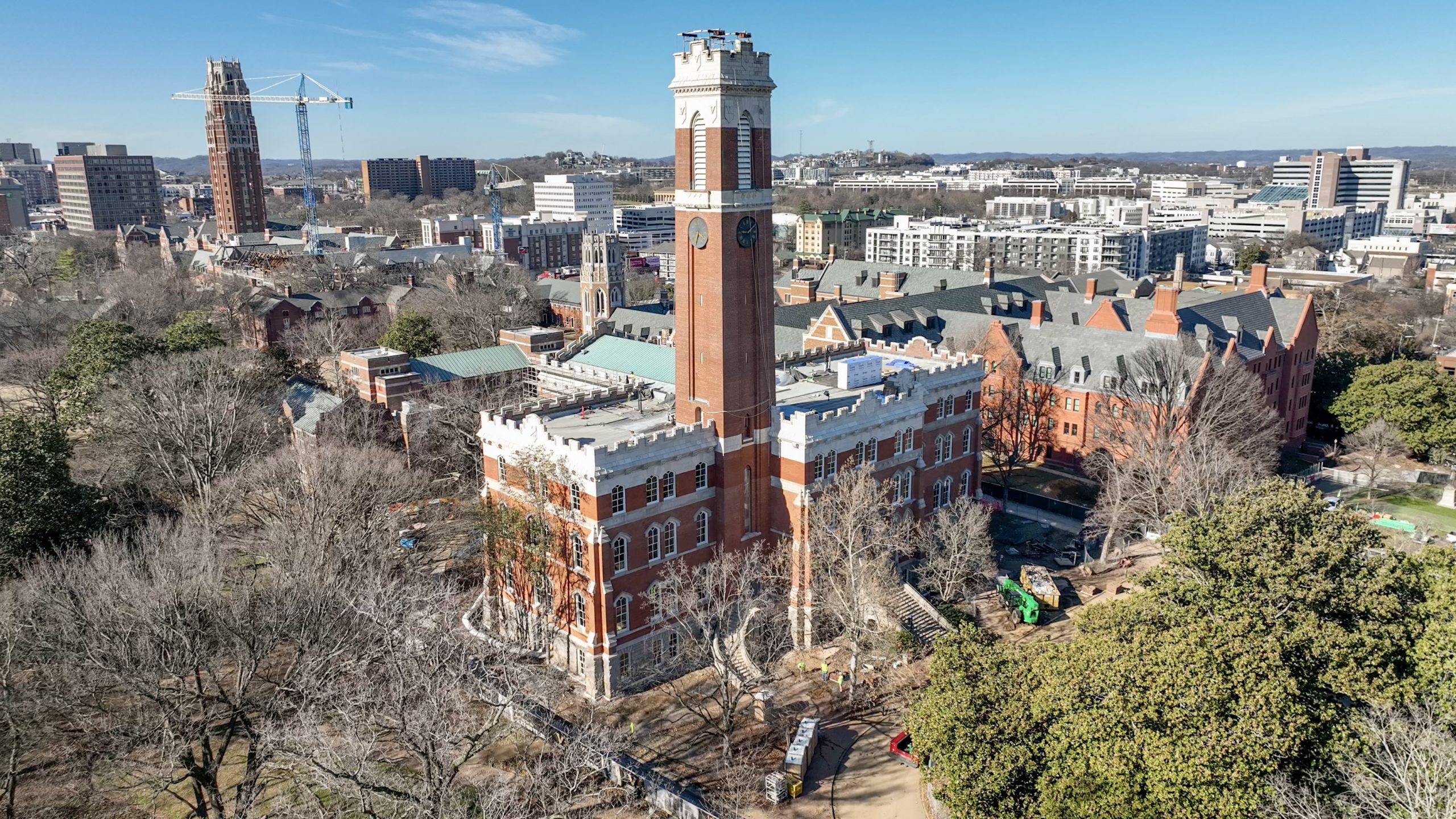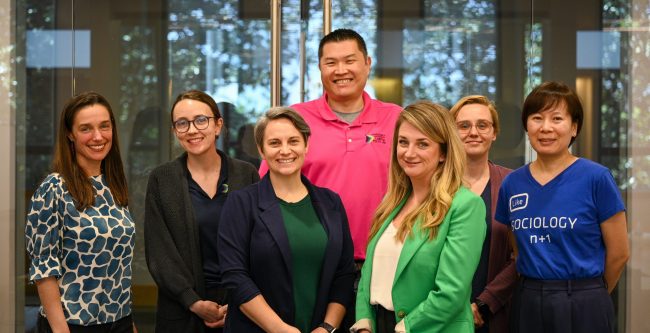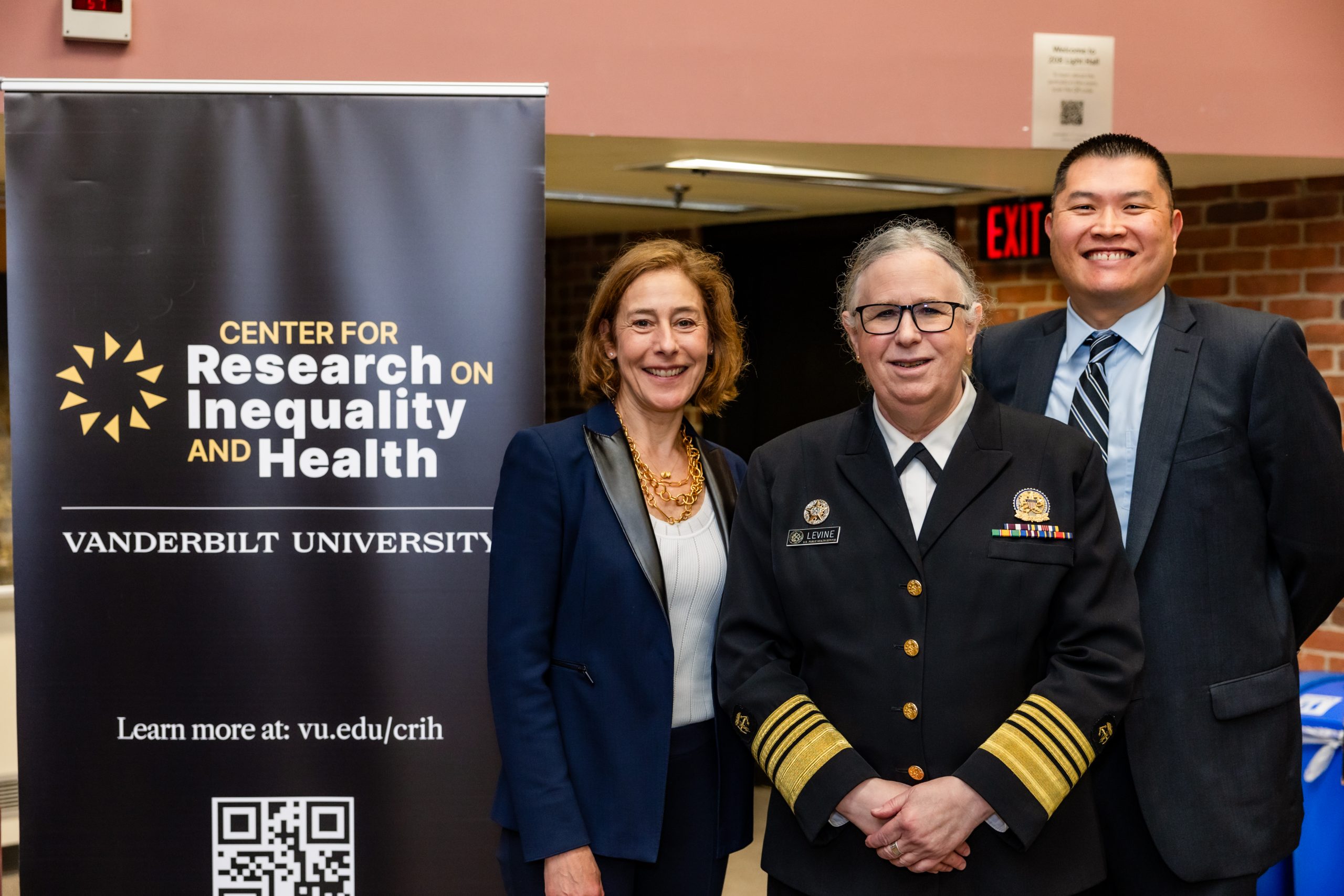On October 17, 2022, Vanderbilt University launched “Discovery Vanderbilt” to embolden faculty, students and staff to pursue innovative ideas through disciplined, rigorous inquiry. Led by Provost Cybele Raver, the university committed $80 million in the effort—and invested $50 million in the first year alone.
“Our faculty members love to take on a grand challenge, to swing with a ‘big bat,’ and it’s so exciting to see them deliver,” Raver said. “As an institution, we are investing millions so that our best minds can truly dare as they take on those big questions, carving new paths of exploration, discovery and innovation.”
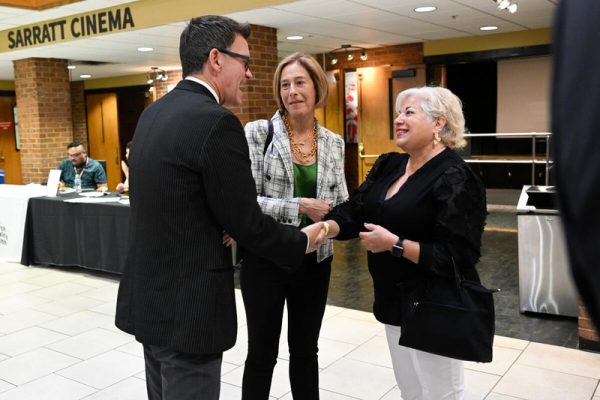
The Vanderbilt community responded, using Discovery Vanderbilt investments to advance knowledge and innovation in artificial intelligence, drug discovery, health equity and more. Discovery Vanderbilt money also improved buildings, labs and infrastructure, recruited faculty, educated lawmakers and launched startup businesses.
MEASURING SUCCESS IN DAYS NOT YEARS
It has been 546 days since the launch of Discovery Vanderbilt. In that brief time, Vanderbilt faculty built and launched multiple centers and institutes, including:
- Vanderbilt Center for Addiction Research, which conducts “frontier research” to understand how the brain controls behavior and illuminate how it changes with addiction.
- Warren Center for Neuroscience Drug Discovery, which aims to translate advances in basic science to new treatments by “de-risking” innovative approaches for the treatment of serious brain disorders.
- Vanderbilt Center for Research on Inequality and Health, which studies the health impact of economic and social inequality, population health science, LGBTQ+ health policy and gun violence.
And before 800 days pass, Vanderbilt will have launched even more discovery centers to tackle critical societal issues like sustainability, energy, climate change and artificial intelligence.
INNOVATING AT THE SPEED OF TECHNOLOGY TAKES AGILITY
“Our accomplishments in the last 546 days clearly demonstrate Vanderbilt’s agility in making strategically timed investments,” Raver said.
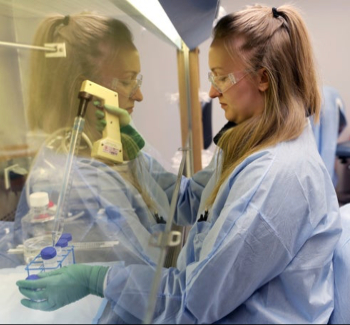
Discovery Vanderbilt funds not only helped in the launch of new centers and institutes of research and innovation, it also empowered faculty to explore burgeoning technologies. The emergence of artificial intelligence, for example, has taken the world by storm and many institutions by surprise. Vanderbilt, however, is on the forefront of AI as faculty use it to accelerate and deepen research and enrich students’ learning experience. Vanderbilt is using not only AI to innovate, but also generative AI and a highly advanced iteration of the ChatGPT engine to improve the accuracy, safety and research value of AI for all.
Last year Vanderbilt put this advanced knowledge to work when Professor Ganesh Sitaraman, the New York Alumni Chancellor’s Chair in Law and director of the Vanderbilt Policy Accelerator for Political Economy and Regulation, briefed Congressional staffers on Vanderbilt advancements in artificial intelligence and provided guidance on ethical considerations and policy frameworks that should accompany the rapid advancement of AI technologies.
DISCOVERY VANDERBILT FUNDS ARE CHANGING LIVES
“At Vanderbilt, we never take our eyes off our mission to bring out the best in humanity, and these funds have been used to tackle some of the world’s greatest problems,” Raver added. “The work of researchers like Erin Calipari, Kitt Carpenter, and Craig Lindsley are making this world a better place.”

Erin Calipari, associate professor of pharmacology and associate director of the Vanderbilt Center for Addiction Research, is tackling the opioid crisis by investigating how to characterize and modulate the precise circuits in the brain. VCAR is focused on neurological interventions that could help cut cravings so patients can focus on other contributing factors.
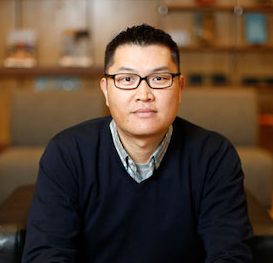
Kitt Carpenter, the E. Bronson Ingram University Distinguished Professor of Economics and Health Policy, launched the Center for Research on Inequality and Health. The center is a trans-institutional collaboration of the College of Arts and Science and the School of Nursing to study economic and social inequality, population health science, LGBTQ+ health policy and gun violence to identify the health impacts of these interrelated areas of study.

Craig Lindsley, the William K. Warren, Jr. Chair in Medicine, University Professor of Pharmacology, Biochemistry and Chemistry, and director of Vanderbilt University’s Warren Center for Neuroscience Drug Discovery, used Discovery Vanderbilt funds to research new drug treatments to prevent and treat serious brain disorders like Alzheimer’s, schizophrenia and Parkinson’s disease. One of the more promising compounds, VU319, which could help slow memory loss accompanying various cognitive diseases, recently went into phase 1 human clinical trials.
The investments in humanity did not stop there. Discovery Vanderbilt launched three faculty-initiated startups:
- HeroWear makes exosuits to alleviate back strain and injuries for people that do heavy and repetitive lifting. The suits were successfully tested with soldiers at nearby Fort Campbell.
- IDBiologics develops human monoclonal antibodies for the treatment and prevention of major infectious diseases, including SARS-CoV-2, influenza, respiratory syncytial and Zika viruses.
- VIRTUOSO invented a robotic surgery system that enables physicians to overcome the limitations of traditional endoscopes and improve the treatment of prostate cancer.
INVESTMENT IN RESEARCH DELIVERS BIG ROI
“The discoveries, innovations and lifesaving solutions that were born of Discovery Vanderbilt in the first 546 days have delivered a remarkable return on investment,” Raver said. “Discovery Vanderbilt has proven to be a high-growth research opportunity, and the ROI has been huge. As part of our investment, we provided more resources for faculty to submit for outside research funding, and it paid off. In year one, we saw an 11 percent year-over-year growth in new outside research funding.”
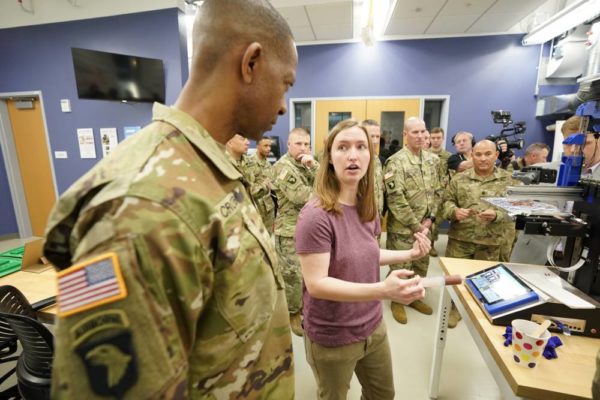
Discovery Vanderbilt also invested in commercialization efforts and increased funding to the Center for Technology Transfer and Commercialization. In 2023, the university had another record-breaking year, reaching $96 million in revenue from licensing, which put Vanderbilt in the top six among research institutions in the country.
Finally, investments in student research and innovation have made Vanderbilt one of the nation’s leading universities in the undergraduate educational experience, inside and outside the classroom. After the launch of Discovery Vanderbilt, there was a 26 percent increase in the number of student applications for Immersion Vanderbilt summer research funds and 13 percent increase in presentations to U.S. and international conferences.
The provost’s office is committed to continuing the remarkable work that began in 2022.
“In the coming months and years, we will continue to ‘swing big bats’ and find solutions for some of humanity’s biggest challenges at global, national, state and local levels,” Raver said. “Our work has only begun.”
For more information about Discovery Vanderbilt, check out the Discovery Vanderbilt news archive
